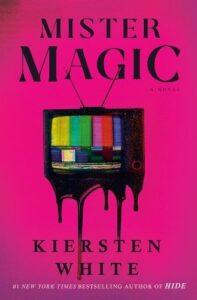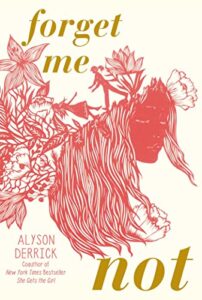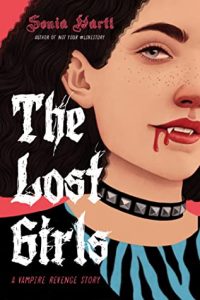I wasn’t sure if I would review this for the Lesbrary at first, because although the main character mentions that she’s bisexual at the beginning, it didn’t seem to come up again. Once I finished it, though, I realized that queerness is essential to the underpinning of the story. (There are also several queer men side characters.)
Millennials all remember Mister Magic: it was a kids’ show with a huge following, and 30 years after it shut down, people still discuss it in message boards and debate the finer points of the show. Was Mister Magic a person or just a puppet? Did the show stop because a kid died, or is that just a creepypasta rumour? These debates are impossible to verify, though, because there are no surviving episodes or even clips from Mister Magic, despite it being one of the longest running shows of all time.
Val doesn’t remember her childhood. Her memories start when she and her father showed up at a horse ranch and began a new life. He refused to let her have any contact with the outside world, including watching television. Then, at his funeral, an oddly familiar man shows up and tells her she was once part of the Circle of Friends on Mister Magic, and they’re all getting together for a reunion. Before she can second guess herself, she leaves with these new/old friends, looking for answers about what she’s been running from her whole life.
I’m a little divided on how I feel about this book. The premise is interesting, and I liked the interspersed snippets about the show, including Reddit discussions. The author’s note was illuminating, and I respect what she was trying to do. I like the message about the danger of trying to return to an imagined childhood innocence, and how trying to do the best for your kids can lead you to crushing their individuality out of them. The ending was surprising but fitting. Spoiler, highlight to read: And I appreciated that the ideal person raising kids and teaching them lessons about the world was a childless queer woman. End spoilers.
While I liked the premise and the message of this novel, the execution fell a little flat to me. I think this would make an amazing novella—maybe even a short story. The middle dragged a lot, and I didn’t feel like I was getting new information. In the end, I’m glad I read it because of the strength of the premise and ending, but I do think most of the middle could be cut without losing much of the story.
As for the horror element, this is a little unsettling and creepy, but not outright scary or disgusting. I think this would be a good book to pick up if you want to dip your toes into horror, but don’t want to give yourself nightmares.
If you’re on the fence, I recommend reading the author’s note first to give you an idea of what the author is going for. Some elements of this are really strong, so it’s a shame that I didn’t enjoy it as much as I could have if the plot was a little more streamlined.
Content warnings for parental abuse and neglect, racism, homophobia, religious trauma, child death.



